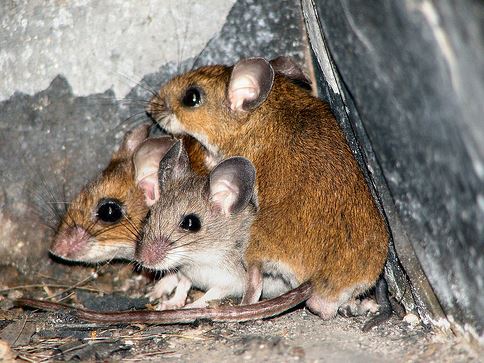Healthy Home: How Those Annoying Pests Can Be Problematic For Your Health

Pests. At some point, we’ve all experienced them in our living spaces. Whether it is a stray spider in the shower, ants under the sink, or a mouse scampering across the basement floor, pests are simply a part of life. It is important that you can tell the difference between a random pest and a problematic infestation. Oftentimes annoying pests can prove hazardous to your health, so must be dealt with appropriately.

Rodents, such as rats and mice, do not mingle well with humans. Rodents are responsible for spreading over 35 diseases throughout the world. This can be directly through bites and waste as well as indirectly through fleas and ticks biting infected rodents and then spreading the disease to humans. Hantavirus, Salmonellosis, and Plague are a few diseases spread by rodents. So, if you see a mouse scamper across the floor of your basement or notice droppings in your attic, do not ignore it. Typically, if you see a single rodent, there are more in the area.
Ants are social creatures, so one is never alone. Unfortunately, ants are not simply a nuisance, but can also pose some health risks to humans. Since ants typically congregate around food, the likelihood of food contamination is high. Certain types, such as carpenter ants, can decrease the integrity of your home through their tunneling. Harvester ants do not typically invade homes, however during mating season, they will. There bites are often extremely painful.
Fleas are a common pest in homes with infected pets. They need blood of a host to survive, and their bites are itchy, sometimes painful, and unsightly. One of the dangers of fleas is their speed of reproduction. A single flea can lay 20-50 eggs on a host that will hatch in 2-5 days. Often treatment of the home, people, and pets is necessary to completely eliminate the problem. Fleas often travel with rodents and spread disease through their bites making it a truly toxic duo to have in your home. If you suspect a rodent and/or flea infestation in your home, it is wise to call in a professional.
Cockroaches are relatively common household pests and are incredibly difficult to eliminate. The National Institute of Environmental Health Sciences reports that one-in-five children in the United States have severe allergies to cockroaches, which increase asthma and allergy symptoms. Cockroaches carry bacteria, such as E coli and salmonella that can contaminate food and cooking spaces. A female cockroach can produce hundreds of offspring every year.
Bedbugs are parasitic and require the blood of a host to survive. Bedbug infestations are on the rise. Their bites can range from unnoticed to extremely painful depending on your individual reaction. Research is somewhat inconclusive concerning the danger of bedbugs. Throughout history, bedbugs have been accused of spreading various blood borne illnesses, however concrete evidence is lacking.
House flies are most definitely a nuisance, but also carriers of easily communicable diseases. Houseflies feed on decomposing organic matter such as waste, garbage, and animal carcasses. They then carry pathogens, bacteria, and parasites on their legs and mouths so that when they land on another surface, they are transferred. The common housefly can be a carrier of diseases such as dysentery, typhoid, cholera, and food poisoning. Do what you can to keep flies out of your house and get rid of any that find their way in.
Some authorities argue that this tiny little flying nuisance is the most dangerous species on Earth. Mosquitoes breed, hatch and thrive in marshy wet areas very rapidly. They feed on blood of vertebrates (including livestock and humans) and are major carriers of some of the most dangerous diseases, including malaria, dengue fever, West Nile virus, and lyme disease.
Common household pests may be simply a nuisance, but it is better not to take the risk. If you are living with pests in your home, take action to take control. It is a good idea to contact a pest control professional if you need assistance. Don’t risk your health or that of your family!
